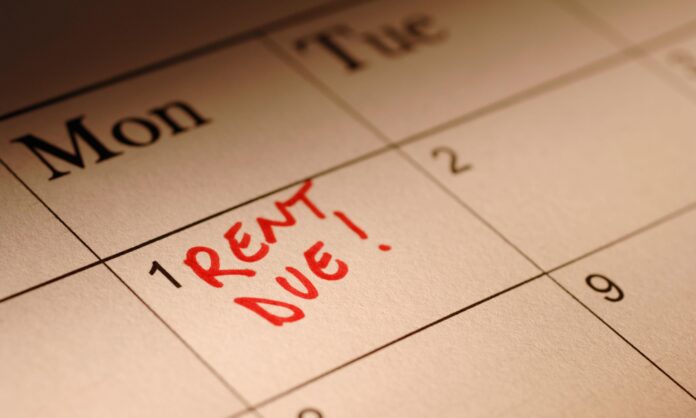The new law now in place is there to help resolve certain remaining commercial rent debts says Paul Scully MP for the Department for Business, Energy & Industrial Strategy, and the Department for Levelling Up, Housing and Communities.
On 24 March 2022 the Commercial Rent Bill received Royal Assent, brought into effect to provide a legally binding arbitration process aimed at resolving certain outstanding commercial rent debts relating to the Covid pandemic.
Since March 2020, significant restraints have been placed on commercial landlords’ ability to recover arrears of rents from their tenants. However, landlords in England and Wales did retain some limited scope to recover rent and other sums due to them under commercial leases, despite the statutory and other restrictions, however. The laws in Scotland and Northern Ireland regarding arrears recovery were different.
Depending on the specific circumstances commercial landlords found themselves in, possible remedies open to them included, for example, recovering sums owed by tenants of commercial property from former tenants, guarantors, subtenants, or by claims in the county courts or High Court.
Code of Practice
On 9 November 2021, the government published an updated code of practice for landlords and tenants of commercial property. The code was voluntary, but was based on measures that are now given statutory force under the Commercial Rent (Coronavirus) Bill (the Bill), which was introduced to parliament on the same day.
The Bill also contained provisions to ring-fence arrears of rents for periods where the tenant had to remain closed, and to introduce a binding arbitration scheme of last resort for commercial landlords and tenants in England and Wales who were unable to come to agreement on those arrears.
The code replaced a previous code of practice issued in June 2020. The code was based on the principle that landlords and tenants should be negotiating how they can share the cost of pandemic-related commercial rent arrears where it is not possible for tenants to pay in full.
The code expected tenants able to meet their obligations to pay in full. However, for those unable to do so they were are expected to negotiate with their landlord “in the expectation” that the landlord waives some or all of the debt if they were able to.
The general moratorium ends
With the passing of the new law, now in place, it aims to resolve certain remaining commercial rent debts disputes accrued because of the pandemic, Business Minister Paul Scully has announced Thursday 24 March.
The ‘Commercial Rent (Coronavirus) Act 2022’ received Royal Assent on that day which means that a legally binding arbitration process will be available for eligible commercial landlords and tenants who have not already reached an agreement.
This will aim to resolve disputes about those pandemic-related rent debts and will help the market return to normal as quickly as possible.
The law applies to specific commercial rent debts for those businesses, including pubs, gyms and restaurants which were mandated to close, in full or in part, from March 2020 until the date restrictions ended for their sector. Debts accrued at other times will not be covered by the legislation.
Business Minister Paul Scully said:
“This new law will give commercial tenants and landlords the ability to draw a line under the uncertainty caused by the pandemic so they can plan ahead and return to normality.
“Landlords and tenants should keep working together to reach their own agreements where possible using our Code of Practice to help them, and we’ve made arbitration available as a last resort.
“Tenants who can repay their rent debts in full, should do so, and when they cannot, landlords should try to share the burden, so we can all move on.
“The government encourages commercial landlords and tenants to negotiate their own agreement where possible, so that an arrangement to resolve debt is mutually agreed, instead of resorting to the arbitration process.”
Continuing protection
Last Thursday 24 March was the last day of the general moratorium on commercial evictions and restrictions on Commercial Rent Arrears Recovery (CRAR) in England and Wales, but eligible firms remain protected for the next 6 months during which arbitration can be applied for or until the conclusion of an arbitration.
The moratorium has provided firms with necessary breathing space to negotiate how to address the cost of commercial rent debts caused by the pandemic, before the new law came into place.
Across the regions
The Code of Practice applies across the UK. The ‘Commercial Rent (Coronavirus) Act’ applies to England and Wales. Scotland has adopted an alternative approach to commercial evictions since the start of the pandemic, due to different property legislation and market conditions and there are differences for Northern Ireland.
More information
For those tenancies not covered by the new legislation, and were landlords and tenants have failed to reach agreement, either party can apply for arbitration unilaterally, as a backstop after negotiations have failed.
However, the parties are free to continue to negotiate outside of the legal arbitration process. The Code encourages the parties to use forms of alternative dispute resolution, such as mediation, if they wish to pursue this.
The window to apply for arbitration will be six months from 24 March and arbitrators may award a reduction of protected rent debt and/or time to pay, with a maximum period to repay of 24 months.
The legal arbitration process is to be delivered by arbitrators that have gone through an approval process to demonstrate their suitability to administer the scheme. The government will publish a list of approved arbitration bodies in due course, and where a dispute is eligible, landlords or tenants will be able to apply directly to any approved arbitration body to appoint an arbitrator.
Further guidance will follow from the departments for landlords and tenants as well as to arbitrators on how the process will work for all parties: Department for Business, Energy & Industrial Strategy and the Department for Levelling Up, Housing and Communities
Credit: Source link













